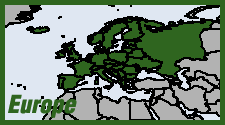 A Dutch court on April 27 upheld a law that will prevent foreigners from buying cannabis in coffee shops, spelling an end to decades of "pot tourism" in the Netherlands. The decision means coffee shops in three southern provinces must stop selling cannabis to foreigners on May 1, when the law takes effect. A so-called "weed pass" is allowed for Dutch citizens and permanent residents. Coffee shops in the southern provinces of Zeeland, North Brabant and Limburg bordering Belgium (see map) will become members-only clubs, allowed to issue up to 2,000 membership cards—known as "weed passes"—to residents over the age of 18.The plan will go nationwide in January 2013.
A Dutch court on April 27 upheld a law that will prevent foreigners from buying cannabis in coffee shops, spelling an end to decades of "pot tourism" in the Netherlands. The decision means coffee shops in three southern provinces must stop selling cannabis to foreigners on May 1, when the law takes effect. A so-called "weed pass" is allowed for Dutch citizens and permanent residents. Coffee shops in the southern provinces of Zeeland, North Brabant and Limburg bordering Belgium (see map) will become members-only clubs, allowed to issue up to 2,000 membership cards—known as "weed passes"—to residents over the age of 18.The plan will go nationwide in January 2013.
There are around 700 coffee shops in the Netherlands. The group of 19 owners who filed the legal challenge to the new law asserts that the law violates the European Union's founding principles because it discriminates between EU citizens on the basis of where they live.
Marc Josemans, who runs the Easy Going coffee shop in Maastricht, has been one of the most outspoken opponents of the ban. He maintains that while the new law is designed to cut crime, it will actually have the opposite effect. "People come here because they know they can buy cannabis," told the BBC. "After the ban they will still come but when they find they're not allowed inside then they will go outside and the dangerous criminal drug dealers will be waiting for them with open arms. We are pushing people into the hands of criminals, it was to stop that from happening that our tolerance policy was introduced in the first place and it was working." (WP/AP, Daily Mail, BBC News, April 27)







Comments
Maastricht smoke-in to protest "pot tourism" ban
As the ban on cannabis sales to foreigners took effect May 1, Belgian tourists and their local supporters held a public smoke-in to protest the new law in Maastricht. In the city's main square, a few hundred demonstrators staged a sit-in, and about 50 openly smoked joints alongside a two-meter-long replica spliff.
Maastricht's mayor, Onno Hoes, was presented with a petition signed by about 300 coffee shops and other outlets asking for the ban not to be enforced. (Reuters, May 1)